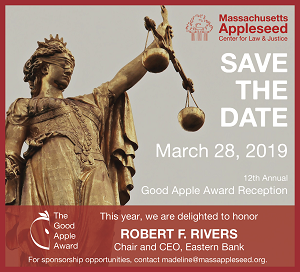By Jake Hofstetter | Research and Policy Associate
In the wake of the massacres in Parkland, Florida and Santa Fe, Texas, the Trump administration proposed several steps, such as arming teachers, to improve school safety. In addition to these proposals, the Secretary of Education Betsy DeVos and her Commission on School Safety released a report that also contained an unrelated policy change — rescinding the Obama administration’s school discipline reforms. Doing away with this policy doesn’t decrease the chances of school shootings. It doesn’t make schools safer. But it does allow schools to discipline students more freely and without considering the harm and racial discrimination that occurs when kids are removed from class.
The Obama administration’s school discipline recommendations were a step in the right direction. The 2014 guidelines recommended school administrators use removals from class or school less frequently due to the harm caused to students’ academic performance. Besides the lack of evidence showing removals improved behavior, these practices were (and still are) having a disproportionate impact on minority students and those with disabilities. To take the place of removals from class, the Obama guidelines encouraged more restorative discipline practices. These policies focused on students’ social and emotional well-being in order to foster safe, nurturing schools. To enforce these guidelines, the Obama administration warned of investigations into schools with serious racial disparities in discipline. Despite the evidence against harsh school discipline practices, the Secretary DeVos’ Commission cancelled the Obama guidelines, citing concerns for school safety and local control over education. School safety matters of course, but there’s something willfully old-fashioned in the administration’s desire to allow harmful school discipline practices to continue for the sake of “maintaining order.”
Admittedly school discipline may seem straightforward and uncontroversial to a lot of Americans. A student breaks the rules, his or her name gets called over the loudspeaker to report to the principal’s office, and the student gets punished. Yet the type of punishment matters a lot. Taking students out of class through detention or suspension harms their chances at academic success. Plus, there’s evidence the practice doesn’t stop misbehavior. We also shouldn’t delude ourselves into thinking that disciplining students is neutral. Black and Latino students are disciplined at greater rates than their white peers even when controlling for poverty and discipline type. Without the threat of federal investigation, there’s no way to tell how school districts across the country will respond. The Obama guidelines may have converted some districts to more effective discipline approaches, but others may return to harmful practices that will lead to worse outcomes for minority, disabled, and LGBT students.
Even though we can’t guarantee what will happen in schools across the country, Massachusetts can continue this important work. The Massachusetts Department of Elementary and Secondary Education deserves praise and recognition for its commitment to the principles laid out in the Obama administration’s guidelines despite the new stance of the federal government. Massachusetts Appleseed will also remain committed to our efforts to reform school discipline practices and disrupt the school-to-prison pipeline. Through our Keep Kids in Class project, Massachusetts Appleseed has provided know-your-rights guides for parents, advocated for less exclusionary discipline practices in schools, and published original research on the state of school discipline across Massachusetts. Despite changes in Washington D.C., we remain dedicated to removing barriers to access to public education and supporting at-risk youth to keep kids in class where they are safe, supported, and free to learn.
Want to stay informed on the latest issues Massachusetts Appleseed is working on?
Sign up for our mailing list.


